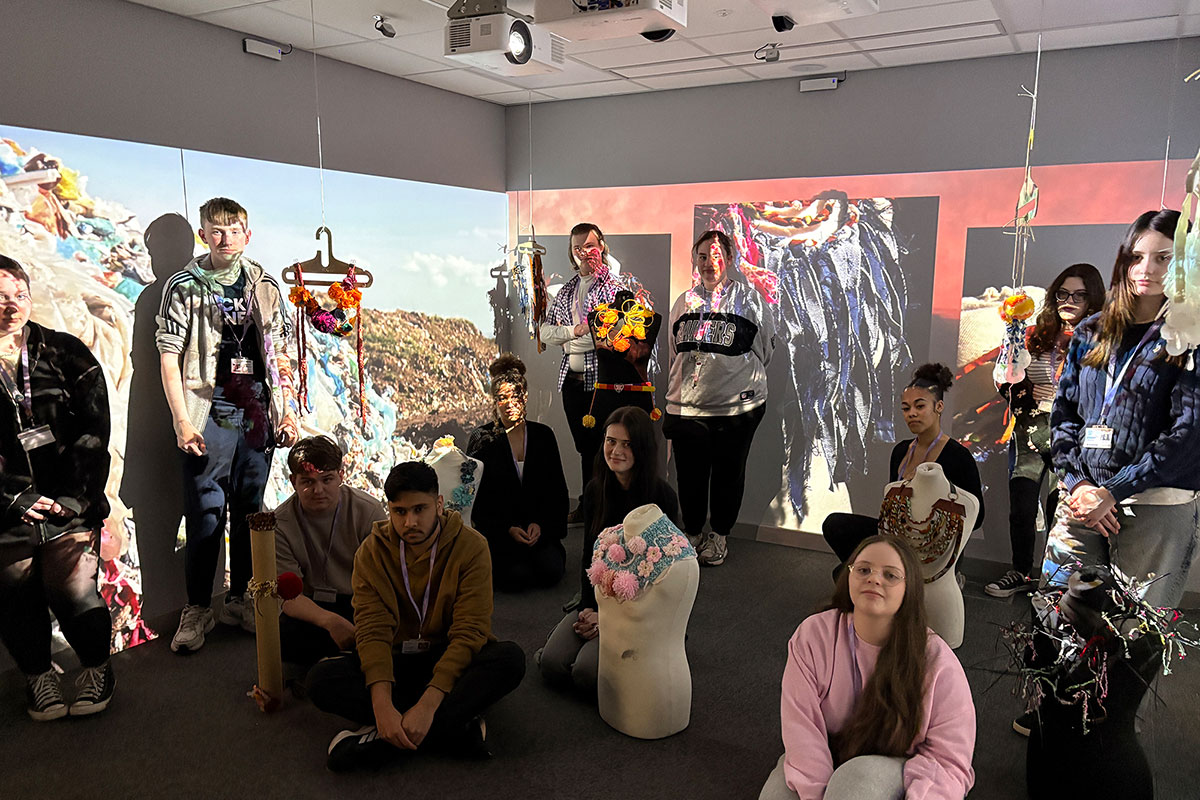Navigating the challenges and opportunities of AI for learners

Michael Webb, director of technology and analytics at Jisc
November 2022 marked a turning point in the public’s perception of artificial intelligence (AI), sparking both excitement and concern in equal measure.
Things have moved quickly over the last year and a half (and especially in the last six months) as AI becomes more integrated into our everyday lives, including education and employment. As the UK’s digital, data and technology agency for tertiary education and a key delivery partner for the Digital 2030: Strategic Framework, Jisc supports our members in their
accelerated adoption of artificial intelligence in a responsible way through the use of pilots [1], advice and guidance [2], events and dedicated AI communities of practice [3] across the further education and skills and higher education sectors.
This includes the use of generative AI tools, which are having a transformative impact on teaching and learning.
Generative AI – it’s more than just ChatGPT
Although probably the best known, ChatGPT is far from the only generative AI tool out there, with new technologies emerging and evolving on an increasingly regular basis to support users in tasks such as coding, searching and content design.
In education and employment, AI powered tools such as Teachermatic [4] and Microsoft Copilot [5] are becoming indispensable for tasks such as generating presentations, preparing learning materials and automating admin. More information can be found in our recent guide [6].
AI is also becoming increasingly integrated into the tools many of us use every day, such as Google Workspaces, Microsoft Teams and even Snapchat, meaning avoiding AI altogether is really not an option.
Using AI ethically
Most organisations are at either the ‘approaching and understanding’ or ‘experimenting and exploring’ phase of using AI, which is the perfect time to start developing responsible processes and guidance for how you want users to interact with AI at your institution.
The meteoric rise in the use of generative AI tools in education was understandably met with some trepidation by many senior leaders and practitioners. Concern centred mainly around opportunities for misuse and the impact on academic integrity and assessment.
The introduction of AI detectors provided some form of reassurance but, in reality, no system today can conclusively prove text is written by AI, so the importance of greater understanding around ethical use for learners and teachers alike is paramount. Also, students need the skills to use AI in the workplace, so that needs to somehow be reflected in assessments.
Jisc recently partnered with the Association of Colleges (AoC) [7] to create a set of principles [8] designed to help colleges and FE providers navigate the challenges and maximise the opportunities of AI. These principles help ensure learners and teachers have the skills they need to thrive in a world increasingly influenced by AI.
Learner attitudes towards generative AI
Most learners today are using generative AI in one way or another. In spring 2023 Jisc produced a report following a series of discussion forums to better understand students’ perceptions of AI [9], including learner usage, key concerns and expectations around the role AI could play in the educational experience.
The findings showed that learners are leveraging generative AI in various areas to enhance both their academic and personal lives, and they believe embracing AI empowers them to contribute meaningfully to an AI-driven world.
Learners also have clear expectations of what they need from their institutions to help them use AI effectively, with the emphasis on advice and guidance around the skills they need and the tools they should use. Consultation is also a key consideration as learners want to be involved in decision making around the use of AI in their own education, asking for open dialogue and collaboration on the subject.
Nine months on, we will soon be launching the next ‘student perceptions of AI’ report, to continue the discussion with learners as technology continues to evolve.
Saving time for staff
Tools such as Teachermatic [4] and Graide [10] have been revolutionising the use of AI in the classroom, helping teachers with their everyday tasks and addressing workload challenges.
Being able, for example, to quickly create lesson plans, quizzes and learning activities based on curriculum and relevant to different abilities and languages has allowed staff to focus on the core human skills technology cannot teach, but which employers strongly value.
There has also been a welcome knock-on effect of boosting the wellbeing of some teachers, such as the staff at Basingstoke College of Technology [11], who won back their evenings and weekends, and regained their creativity once the slog of unnecessary admin was removed.
The way forward
As these tools proliferate, and guidance for ethical and responsible use becomes increasingly embedded, opportunities to harness generative AI to improve teaching and learning will only increase.
For institutions moving towards the ‘operational’ and ‘embedded’ stages of AI adoption, clear strategy and principles for use will be essential to ensure ethical and appropriate uptake.
The goal is to ensure students are equipped with the skills to thrive in an AI-powered workplace. New technology always leads to new types of jobs, and AI is no different – for example, the emergence of prompt engineer roles. It is estimated that 10-30% of all jobs could be automated by AI, which is a daunting figure, but new career opportunities are regularly emerging as employers realise the opportunities available to them from new technologies. The impact of AI on UK jobs and training [12].
Most jobs will likely involve some element of AI skill in the future, with AI literacy already high on the list for many interviewers alongside essential human skills such as critical thinking, adaptability and ethical decision-making.
The last eighteen months have been a whirlwind of innovation and adaptation in the field of AI in education and employment, and the pace is likely to continue. Collaboration between the workplace and the classroom will be essential to ensure learners are gaining the skills employers need. As long as learners and educators remain adaptable, open minded and hungry to learn, then there are exciting times ahead.
[1] pilots
[2] advice and guidance
[3] AI communities of practice
[4] Teachermatic
[5] Microsoft Copilot
[6] our recent guide
[7] Association of Colleges (AoC)
[8] create a set of principles
[9] better understand students’ perceptions of AI
[10] Graide
[11] Basingstoke College of Technology
[12] The impact of AI on UK jobs and training











Responses